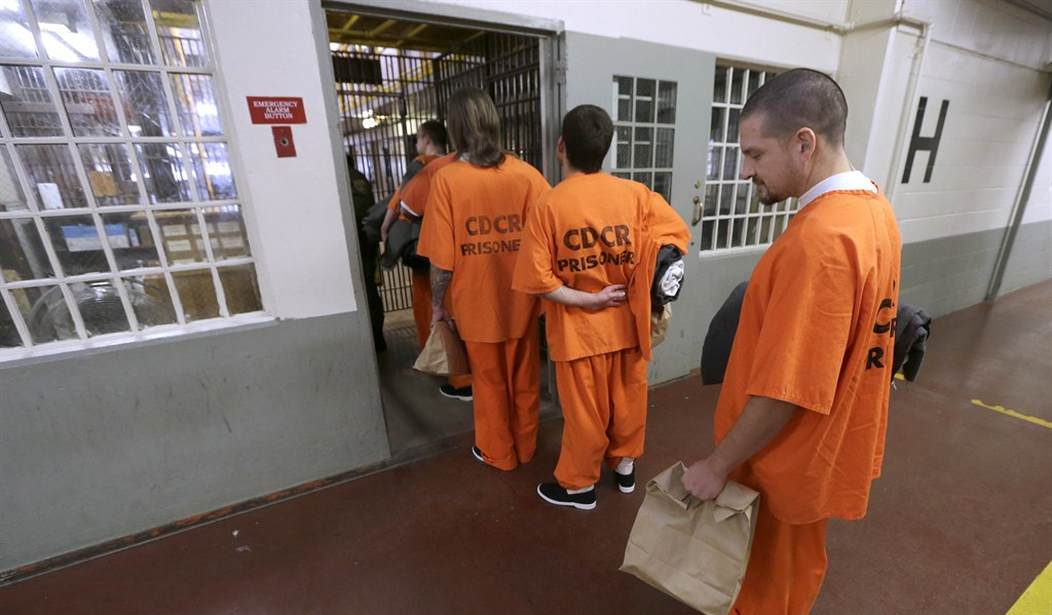The New York Times calls this Obamacare provision a "little known" fact. Indeed:
In a little-noticed outcome of President Obama’s Affordable Care Act, jails and prisons around the country are beginning to sign up inmates for health insurance under the law, taking advantage of the expansion of Medicaid that allows states to extend coverage to single and childless adults — a major part of the prison population. State and counties are enrolling inmates for two main reasons. Although Medicaid does not cover standard health care for inmates, it can pay for their hospital stays beyond 24 hours — meaning states can transfer millions of dollars of obligations to the federal government.But the most important benefit of the program, corrections officials say, is that inmates who are enrolled in Medicaid while in jail or prison can have coverage after they get out. People coming out of jail or prison have disproportionately high rates of chronic diseases, especially mental illness and addictive disorders. Few, however, have insurance, and many would qualify for Medicaid under the income test for the program — 138 percent of the poverty line — in the 25 states that have elected to expand their programs. Health care experts estimate that up to 35 percent of those newly eligible for Medicaid under Mr. Obama’s health care law are people with histories of criminal justice system involvement...
The Times quotes conservative health policy expert Avik Roy discussing the public relations problem this may raise: “There can be little doubt that it would be controversial if it was widely understood that a substantial proportion of the Medicaid expansion that taxpayers are funding would be directed toward convicted criminals,” he said. The piece notes that many critics of the "Affordable" Care Act contend that its massive expansion of Medicaid only taxes an already-overburdened program, and that shifting state-level obligations for prisoner care will negatively impact the federal budget. Medicaid is, in fact, a broken system. It does not reduce uncompensated care at emergency rooms (which is often used as an non-factual selling point of the expansion), and its beneficiaries do not experience better health outcomes than their uninsured counterparts. Defenders of this 'care for convicts' program will no doubt argue that it is a humane endeavor that helps reduce criminal recidivism. Here's one such claim from the story:
“For those newly covered, it will open up treatment doors for them” and potentially save money in the long run by reducing recidivism, said Dr. Fred Osher, director of health systems and services policy for the Council of State Governments Justice Center. He added that a 2009 study in Washington State found that low-income adults who received treatment for addiction had significantly fewer arrests than those who were untreated.
Recommended
I would like to see additional scholarship on this question. The promise of "potentially" saving money "in the long run" sounds nebulous and aspirational (like many liberal policies), not empirical. Taxpayers already foot the bill for inmates' medical treatment behind bars, but the Medicaid gambit permanently extends many convicts' taxpayer-funded care beyond the duration of their sentences. The Times story describes the city of Chicago's new standing policy to automatically enroll inmates as part of the post-arrest intake process. Roy suspects -- rightly, I think -- that this won't sit well with many Americans. Obamacare will reduce incomes for a large majority of American wage-earners, raise costs for two-thirds of small businesses, and is badly failing to attract the uninsured. It will come as cold comfort to law-abiding taxpayers that their rising healthcare costs are being used to subsidize care for criminals.
UPDATE - This seems like as a good time as any to link back to reports of convicted felons -- including at least one terrorist -- being hired on as Obamacare navigators.

























Join the conversation as a VIP Member